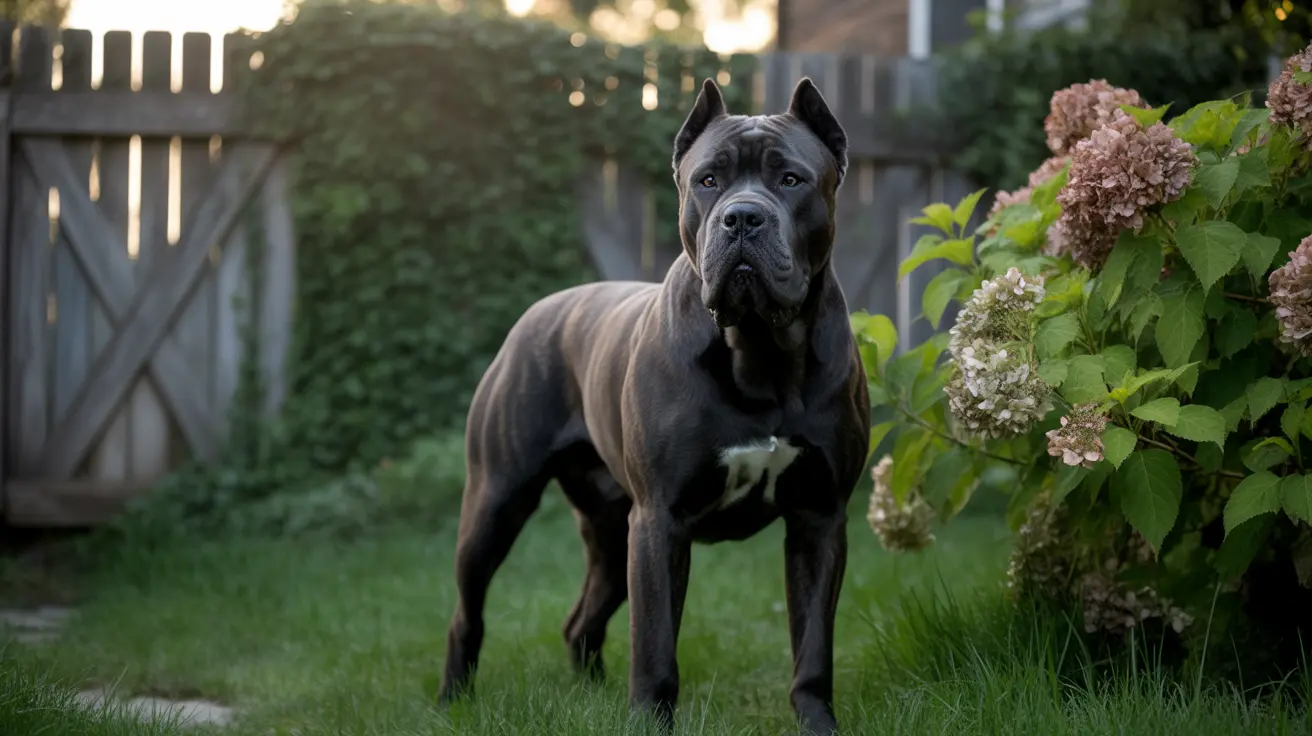The Cane Corso stands out among dog breeds for its unique blend of intelligence, protective instincts, and physical prowess. While these Italian Mastiffs might not top traditional intelligence rankings, their mental capabilities extend far beyond simple obedience, making them exceptional working dogs and family guardians.
In this comprehensive guide, we'll explore the various dimensions of Cane Corso intelligence, from their problem-solving abilities to their emotional awareness, and understand why these dogs are considered highly capable companions for experienced owners.
Types of Intelligence in Cane Corsos
Cane Corsos demonstrate intelligence in three distinct ways: instinctive, adaptive, and emotional intelligence. Their instinctive intelligence shines through their natural guarding abilities and awareness of their surroundings. Adaptive intelligence allows them to solve problems and learn from experience, while their emotional intelligence enables them to form deep bonds with their families and read human emotions effectively.
Working Intelligence and Problem-Solving
While not ranked among the top 20 most obedient breeds, Cane Corsos excel in practical intelligence. They can assess situations independently, make quick decisions, and adapt their behavior based on circumstances. This makes them particularly valuable in roles requiring autonomous thinking, such as protection work and property guarding.
Training and Mental Stimulation
The key to maximizing a Cane Corso's intelligence lies in proper training and mental stimulation. These dogs require:
- Early socialization starting in puppyhood
- Consistent, positive reinforcement-based training
- Regular mental challenges and problem-solving activities
- Structured physical exercise combined with mental work
Real-World Applications
Cane Corsos put their intelligence to work in various roles, including:
- Personal protection
- Family guardianship
- Search and rescue operations
- Therapy work
- Advanced obedience and sports
Smart but Independent: Managing Cane Corso Traits
Their intelligence comes with a strong independent streak, which can present challenges. Successful Cane Corso owners understand that these dogs require:
- Clear leadership and boundaries
- Regular training throughout their lives
- Patience and consistency in commands
- Understanding of their protective nature
Frequently Asked Questions
How intelligent is the Cane Corso compared to other dog breeds?
Cane Corsos demonstrate above-average intelligence, particularly in areas of problem-solving and situational awareness. While they may not rank among the top breeds for obedience-based intelligence, their adaptive and instinctive intelligence makes them highly capable working dogs.
Why isn't the Cane Corso ranked in Stanley Coren's top 20 most obedient dog breeds?
Their independent nature and complex intelligence profile focus more on practical problem-solving and protective instincts rather than pure obedience. This unique combination of traits places them outside traditional obedience-based rankings.
What types of intelligence do Cane Corsos excel at beyond obedience?
Cane Corsos excel in instinctive intelligence (guarding and protection), adaptive intelligence (problem-solving), and emotional intelligence (reading and responding to human emotions and situations).
How can I effectively train and socialize a Cane Corso to use their intelligence well?
Start training and socialization early, use positive reinforcement consistently, provide regular mental stimulation, and maintain clear boundaries. Focus on building trust and respect rather than trying to dominate the dog.
What are common challenges owners face due to the Cane Corso's unique intelligence and independence?
Common challenges include stubbornness during training, independent decision-making that may conflict with commands, and the need for consistent leadership to prevent protective instincts from becoming problematic behaviors.
When properly trained and socialized, a Cane Corso's intelligence becomes one of their greatest assets, enabling them to be both protective guardians and loving family companions. Understanding and working with their unique mental capabilities is key to developing a well-rounded, reliable dog.






